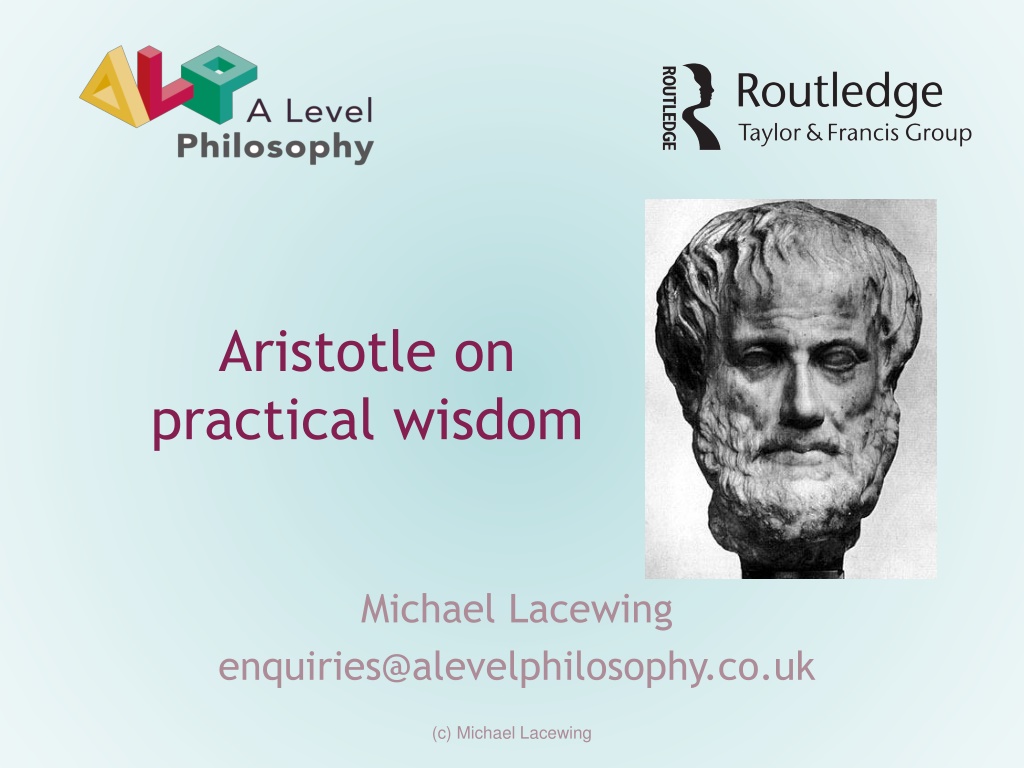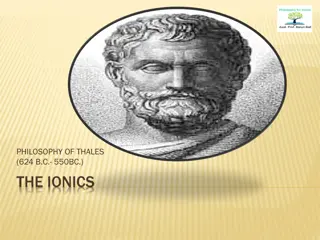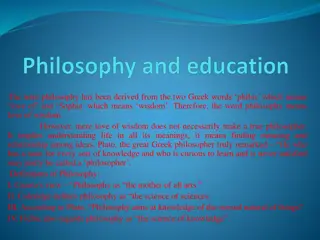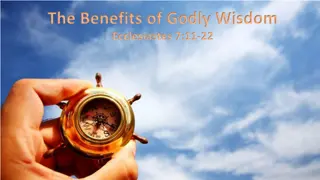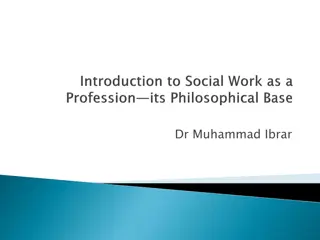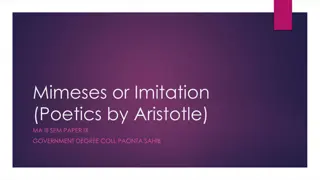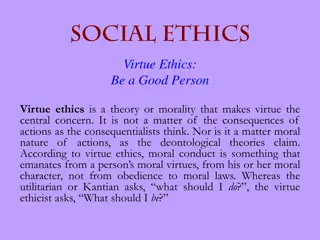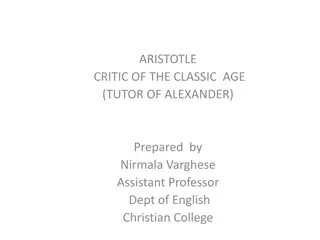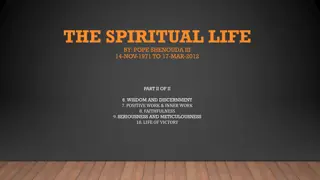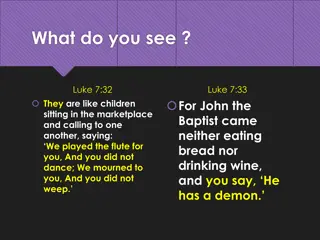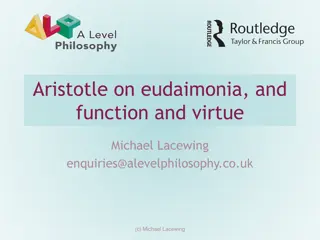Understanding Practical Wisdom in Aristotle's Philosophy
Aristotle's concept of practical wisdom (phronesis) is essential for living a successful and fulfilling life. It involves having the right desires and making good choices based on a general conception of what is good for human flourishing. Practical wisdom enables us to deliberate well and act in accordance with our reasoning, avoiding failures such as faulty deliberation or misunderstanding the means to achieving the right ends.
Download Presentation

Please find below an Image/Link to download the presentation.
The content on the website is provided AS IS for your information and personal use only. It may not be sold, licensed, or shared on other websites without obtaining consent from the author. Download presentation by click this link. If you encounter any issues during the download, it is possible that the publisher has removed the file from their server.
E N D
Presentation Transcript
Aristotle on practical wisdom Michael Lacewing enquiries@alevelphilosophy.co.uk (c) Michael Lacewing
The good What is the good for human beings? What is it that we are aiming at? What would provide a successful, fulfilling, good life? Eudaimonia: The good for a human life living well and faring well : flourishing Aristotle argues that we are distinctively rational creatures, and so eudaimonia consists in living in accordance with reason Virtues are traits of mind or character that enable us to do this
What is practical wisdom? Practical wisdom (phronesis) is an intellectual virtue of practical reasoning Theoretical reason investigates what we can t change and aims at the truth. Practical reason investigates what we can change and aims at making good choices. Reasoning about what we can change is deliberation, so practical reason is expressed in deliberation. (c) Michael Lacewing
What is practical wisdom? To make good choices, not only must our reasoning be correct, but we must also have the right desires Practical wisdom is a true and reasoned state or capacity to act with regard to the things that are good or bad for man It is not merely theoretical knowledge of what is good or bad, but also the capacity to act on such knowledge. (c) Michael Lacewing
Features of practical wisdom a general conception of what is good or bad, related to the conditions for human flourishing; the ability to perceive, in light of that general conception, what is required in terms of feeling, choice, and action in a particular situation; the ability to deliberate well; and the ability to act on that deliberation. (c) Michael Lacewing
Failures of deliberation We can deliberate with the wrong end: wrong starting point leads to the wrong choice. Our general knowledge of the good is faulty. We don t understand the right means to the end If we achieve the right end, this is accidental or lucky Either our knowledge of the particular circumstances or our reasoning is faulty. We can fail to deliberate when we should or take too long. (c) Michael Lacewing
Contextualism There are no rules for applying general knowledge of the good life to an individual situation There are no true generalizations about right/wrong So practical wisdom is a form of intuitive reason. But ethics is not subjective; it is context- sensitive . Practical wisdom cannot be taught, but must be acquired through experience. As with perception, argument may not convince you need to see (c) Michael Lacewing
Practical wisdom and virtue Virtues set our ends we aim at the good life But practical wisdom is needed to choose what is good in this situation The virtuous person feels and chooses at the right times, with reference to the right objects, towards the right people, with the right motive, and in the right way Acting in accordance with virtue isn t fully virtuous action You must also know what you are doing and choose it for its own sake Natural virtue is not full virtue (c) Michael Lacewing
Practical wisdom and virtue Practical wisdom also depends on virtue Good choices require the right desires A bad man can be very clever, but does not make good choices (c) Michael Lacewing
